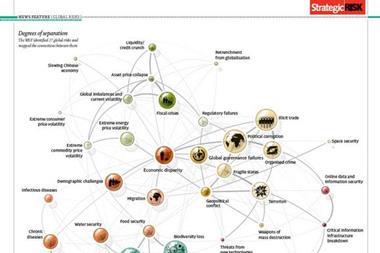Aon publishes white paper
Against the background of the first outbreak of avian flu hitting Europe, and the World Health Organisation (WHO) urging countries to prepare for massive social and economic disruption brought about by a pandemic, Aon published its white paper on the risks faced by businesses (Pandemic Influenza: Managing the Risks of an Invisible Threat) and called on corporates to take action to protect their performance.
Despite the considerable risks of a flu pandemic, the report highlights that insurance markets currently offer little protection apart from life assurance and sickness cover, stressing the need for robust business continuity planning to go to the top of the corporate agenda.
The social and economic implications of a flu pandemic for businesses are extensive: the WHO estimates that it may debilitate up to 25% of the workforce at any one time, while the UK’s own contingency plan puts this figure as high as 50%. Though less infectious and virulent than avian flu, SARS hit the economies of East and South East Asia hard. According to the Asian Development Bank, the overall loss in demand and business revenue was approximately US$60bn.
Aon’s white paper highlights that an outbreak of the flu pandemic would cause travel, tourism and trade (import and export) to be shut down in an attempt to contain the disease. Cash flow problems would affect businesses as employees fell sick or took time off work to care for family members, or could not travel due to quarantine and fuel shortages. The Government predicts that normal sickness rates of between 2% and 6% would be likely to double in the case of a pandemic and that up to 25% of the workforce would be absent for between five and eight days over a three month period.
Businesses that increasingly use overseas suppliers and integrated ‘just in time’ techniques also face the risk of supply chain interruption, and hence substantial losses if materials or supplies are quarantined as a result of a pandemic.
In spite of these risks, research by the Chartered Management Institute shows that businesses have given little consideration to the possible impacts of a flu pandemic.














